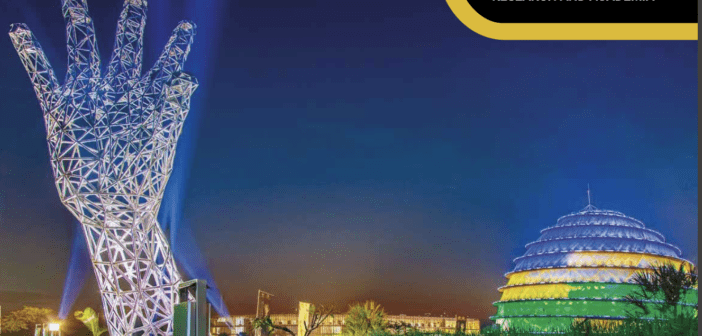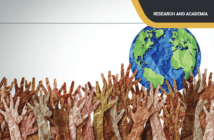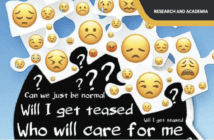By CPA Ahuli Silas Afanda
Why You Should Travel
The importance of travel to a professional cannot be overemphasized. I have had a chance to work both in Kenya and Rwanda with an external audit firm. I studied Industrial Chemistry at the University of Nairobi (undergraduate) and later on earned my CPA (K) a few years down the line. Last year in August 2022, I attained my CPS Final Certificate with KASNEB. The challenges in getting a job in my first career line made me diversify to accounting. A few years down the line I am grateful for the tidings.
By travelling to different parts of the world we get to explore new cultures and ideas. This helps to enhance our way of thinking as we interact with new environments. We get to be more mentally and physically healthy, improve our communication skills, expand our horizons as professionals. Apart from these, travelling can make you be mindful of other cultures in other parts of the world. In reaching out to new destinations we make memorable memories.
On the other side of travelling, apart from the pros travelling has got its other cons. It can be costly and one has to make sufficient savings. Travelling can result in stress which of course varies from person to person all depended-on one’s past experiences and the ability to be tolerant of new circumstances. Stress may be manifested by difficulties in concentration and clear thinking as well as irritability.
Travelling may also lead to culture shock. This is a normal process where one gets to acclimatize to new ways of life. You may experience conflicts in values and customs along the way. This has always resulted in anxiety and feeling of homesickness. Culture Shock stages comprise of Honeymoon Stage, Negotiation Stage, Adjustment Stage Adaptation and finally the Re-entry Shock.
During the Honeymoon Stage one gets captivated by the new surroundings. You get to make new friends and experience new foods, cooking styles and languages. On my first day in kigali, I had to learn a few words in Kinyarwanda like Amakuru? (News?) Amakuru yawe? (Your news?) Umeze gute? (You good?) – sg Mumeze gute? (You good?) Murakoze (Thank you) (to help me converse).
Next enters the Negotiation Stage. At this stage excitement will gradually disappear. Uncomfortable situations will offend you and you begin to feel disconnected. Often simple things may set you off.
Adjustment Stage will often manifest itself six to twelve months down the line. Relaxation sets in and one begins to more able to access information. Homesickness eventually subsides.
At the Adaptation, integration into the new culture takes place. One no longer feels like being in isolation and instead gets used to daily activities and new friends. There is a strong sense of belonging and one feels at home.
Re-entry Shock will manifest as a result of interaction with other cultures. When I travel back to Nairobi and eventually western Kenya to be specific, Vihiga County, the side effects of living with other cultures manifest. Often on arrival I get difficulties reconnecting with family and friends upon return. At times I find relatives known to me have passed away.
Aside from culture shock I have been able to learn a lot as regard auditing in Rwanda and the various Laws. The introduction of the EBM has helped ease tax administration with the Rwanda Revenue Authority. VAT refund has been made easier and the information is easily available to allow quick payment without having to necessitate further auditing processes. Kenya has taken a cue from the Electronic Billing Machine experience and currently Kenya Revenue Authority has embraced the ideology to monitor formal business transactions and eventually offer the potential to improve VAT compliance in Kenya. I have been involved in audits of diverse clients. Notably- in manufacturing, wholesale, architectural and engineering. Our firm has been subcontracted by OAG Rwanda to do Government Hospital Audits. Through my external audit assignments I have been able to visit various parts of the Rwandan country including Muhanga and Kayonze where we had a client in the courier industry using drones to deliver blood and drugs for the Health ministry (Zipline Rwanda limited).I have also Visited Musanze on an assignment for feeds manufacturing company, not forgetting Rwamagana for the audit of the leading Steel Industry in Rwanda SteelRwa industries Limited. The experience has been invaluable.
From the areas visited I discovered that Rwanda is a country blessed that is immensely with extraordinary biodiversity. Their wildlife is incredible, so are the volcanoes, mountains, rainforests as well as the sweeping plains. I am still eager to explore the mountain gorillas in the Virunga Massif. Due to the concerted efforts between the government, communities living around and Non-governmental Organisations, their populations are beginning to soar. The gorilla primate is split into lowland and mountain types. Rwanda is home to endangered mountain gorillas. Tracking of gorillas in Rwanda has been described to be safe worldwide. The cost of a single gorilla permit in Rwanda is USD 1,500 for visitors outside Africa. So this is a major foreign exchange earner for the country. The price is however discounted for citizens of Rwanda and other East African countries.
The common mode of transport within Kigali city is Motor cycle Taxis commonly known as Motos. The fare has always ranged from Frw 500 to 1000 with occasional moments where motorcyclists ask for Fr 2000 at night. A trip to the Airport using the Yego motor vehicle can cost one an average of Frw 10,000. With the introduction of Yego motors in kigali and wider Rwanda Republic, the hire of Taxis has been eased. You simply flag down a Yego moto, inform the driver of your intended destination and soon you are on your way. Passengers get to pay the fare that gets displayed on the YEGOMOTO Meter at the tail end of the trip. The system allows automatic calculation of the fares in tandem with the distance traversed, even though additional waiting charges may apply accordingly. I plan to travel widely in Rwanda and thereafter, East Africa, and eventually the world over.
The writer has a Bachelor’s degree in Industrial Chemistry from the University of Nairobi. He is a CPA (K), a member of ICPAK, and of ICPAR and a CPS Finalist, KASNEB. He works with PKF East Africa as Senior Auditor, based in Kigali Rwanda.
Emails; [email protected]




